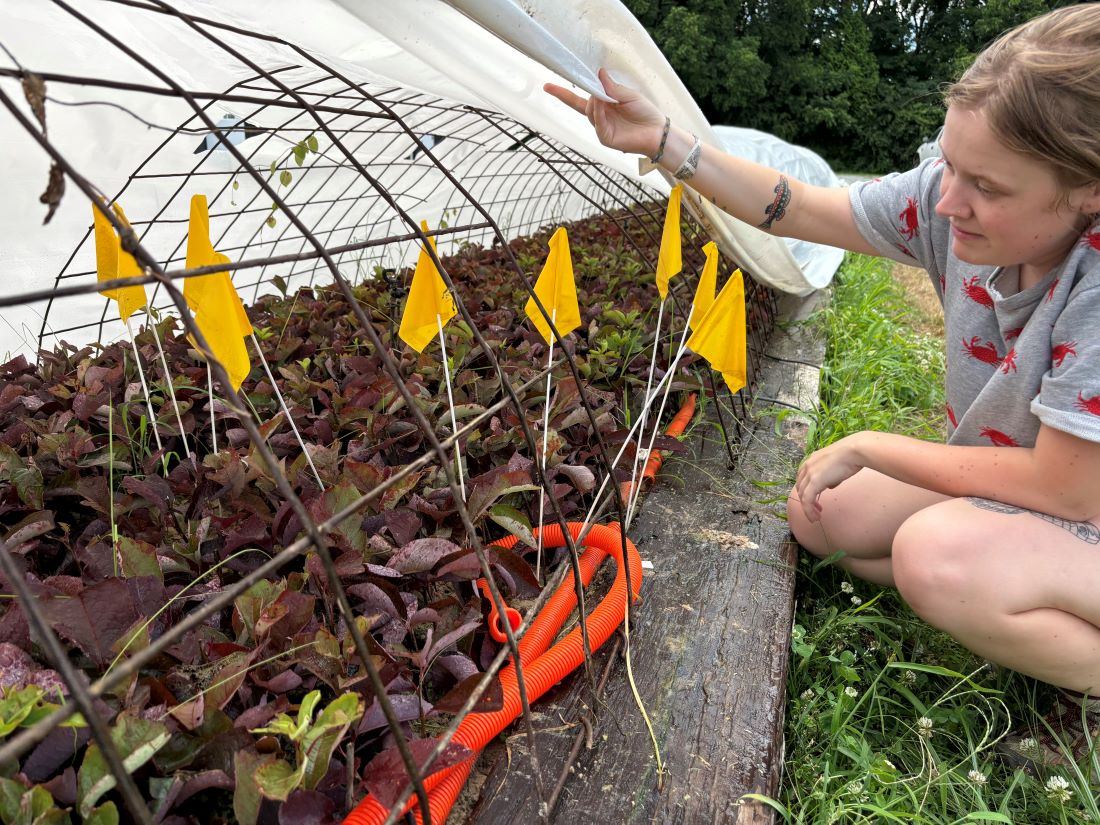
UTIA Faculty Help Mentor Local Pellissippi Students During Their Academic Journeys
KNOXVILLE, Tenn. – Faculty in the University of Tennessee Herbert College of Agriculture are helping pave the way for more women and minorities to seek advanced degrees in science and other STEM fields through a grant that provides mentorship and resources to community college students.
The Women and Minorities in Science, Technology, Engineering and Mathematics Fields grant program (WAMS), funded by the U.S. Department of Agriculture National Institute of Food and Agriculture, awarded a three-year $200,000 grant to the UT Institute of Agriculture, and Texas Tech University to work with partner community colleges. Through the grant, the universities will establish community college chapters of Minorities in Agriculture, Natural Resources, and Related Sciences (MANRRS) and host community college students in the Science Engagement and Leadership Academy at each university.
Four students from Pellissippi State Community College in Knoxville are participating this summer in the academy, working alongside UT Herbert faculty for six weeks, while five students from South Plains College in Levelland, Texas, are paired with faculty at Texas Tech University. Taylor Ruth, assistant professor of agricultural and natural resources science communication, and jointly appointed through UT AgResearch and Herbert, is leading the Tennessee cohort in collaboration with Sharon Jean-Philippe, professor of urban forestry in the School of Natural Resources and UT Faculty Director of Undergraduate Research and Fellowship. Jason Headrick, assistant professor of leadership and community development at Texas Tech, is leading the Texas program.
The purpose of the program is to encourage more women and minorities to pursue STEM fields and provide education and guidance beyond technical training. “We are creating a pipeline between Pellissippi and the University of Tennessee to give minority, first-generation and rural students who may not traditionally have exposure and opportunities for STEM pathways,” Ruth said. “We want to build community and a sense of belonging so that they can see themselves as scientists.”
Pellissippi students Ivy Hoig, Adam Fields and Sarah Slaton, and Shihyun Ahn, who earned an associate degree at Pellissippi and is transferring to UT Knoxville this fall, are participating in the six-week academy this summer. Each student fellow has a Herbert faculty mentor and research focus in an agriculture-related field:
- Hoig, working with plant sciences professor Amy Fulcher, is studying the use of soil moisture sensors to assist growers in irrigation decision making. Hoig is from Knoxville.
- Fields and Ahn, working with plant sciences associate professor Brandon Horvath, are focusing on turfgrass science and management. Fields is from Greenback, Tennessee, and Ahn moved from South Korea to attend high school in Utah.
- Slaton, working with animal science associate professor Agustin Rius, is studying the impact of protein feed on dairy cows. Slaton is from Farragut, Tennessee.
The student fellows also are learning about networking, preparing for job interviews, practicing public speaking and honing their leadership skills. They were chosen from 48 applicants for their interest and fit for the program. The grant funding will be used for the students’ mentorship, research activities and travel to the MANRRS national conference in April 2025 in Memphis.
Once the academy is complete, students can be involved in MANRRS at their community college. MANRRS chapters currently are located on college campuses, such as UT Knoxville and Texas Tech, but the program hopes to encourage the development of chapters at community colleges as well to help recruit students toward pursuing bachelor’s, master’s and even doctoral degrees in STEM fields.
The students say they appreciate the encouragement and resources the program provides. “I applied because I get jazzed up about science and like outside time,” Hoig said.
“This program has connected me with people at UT and in the field who showed me that I really can pursue a career in animal sciences – like I can actually do it,” Slaton said.
Ruth, who joined the UTIA faculty in August 2023 after stints at the University of Illinois at Urbana-Champaign and University of Nebraska-Lincoln, earned her bachelor’s degree in microbiology and cell sciences, followed by a master’s and a doctorate in agricultural education and communication at the University of Florida. In addition to her own research and teaching, she is passionate about providing opportunities to more students. “I want to open more doors for students who haven’t had access or opportunities before,” she said. “It’s the right thing to do for students.”
For more information about WAMS, visit the USDA-NIFA website.
The University of Tennessee Institute of Agriculture is comprised of the Herbert College of Agriculture, UT College of Veterinary Medicine, UT AgResearch and UT Extension. Through its land-grant mission of teaching, research and outreach, the Institute touches lives and provides Real. Life. Solutions. to Tennesseans and beyond. utia.tennessee.edu.